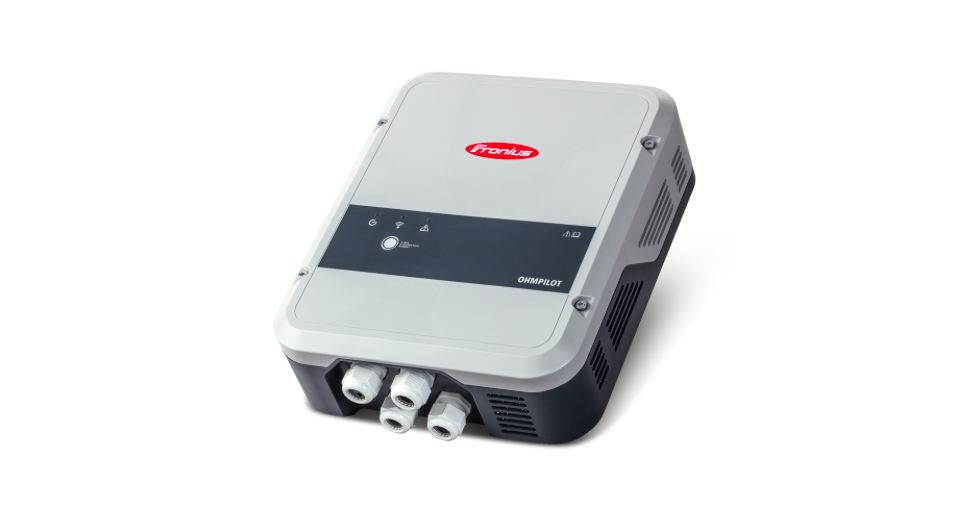Austrian inverter supplier Fronius is introducing its Ohmpilot consumption regulator, which it says can allow an average four-person household to meet 50% of its hot water demands with excess PV electricity. The system couples to a Fronius inverter or energy management system, turning hot water systems on when there is a surplus of solar energy that would otherwise be sent to the grid.
Fronius points to the development as a sign that sector integration is becoming increasingly important in the generation and use of renewable energy. With the device, households that have solar installed will be able to increase their rate of self-consumption, particularly when residents are away from the home during the day.
Heating water can be a more effective way of utilizing solar output during the day than storage in batteries – which still remain expensive and may not be cost effective for many households.
The Ohmpilot device has a continuously adjustable output range of almost 0 – 9 kW. The power can be fed to heating elements in boilers and buffer tanks, although it can also be utilized by infra-red heaters and heated towel rails.
“With a typically sized photovoltaic system of five kilowatts (peak), the Ohmpilot can heat 150 liters of hot water from 10 to around 40 degrees Celsius, even on a partially cloudy day,” said Martin Hackl, head of solar energy at Fronius International in a statement. “On sunny days, the average energy excess can allow 300 liters to be heated from 10 to 60 degrees Celsius. This is particularly advantageous in summer and inter-seasonal times of year, as the conventional heating system does not need to be used at all. Consumers benefit from lower energy costs and an improved payback period for the overall system.”
In Europe Fronius prices an installed Ohmpilot unit between €1,100 – €1,300, including the cost of retrofit.
This content is protected by copyright and may not be reused. If you want to cooperate with us and would like to reuse some of our content, please contact: editors@pv-magazine.com.








Quite expensive solution compared to a thermodynamic heater or a solar heater at least in France Aquitaine.
You sell back the kwh 10cts, gaz heater cost you 8cts/kwh. Why should I switch?
Probably more effective to use a heat pump or a thermodynamic water heater.
Any opinion?